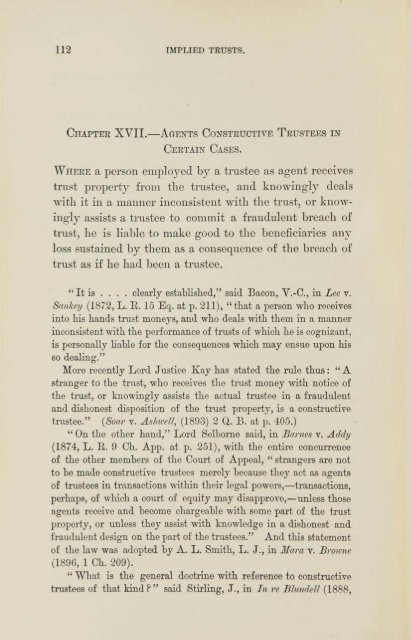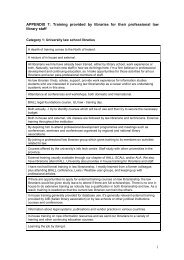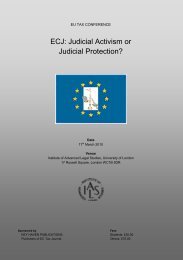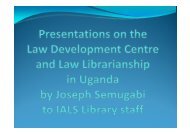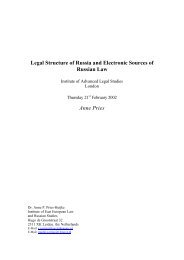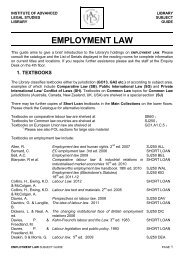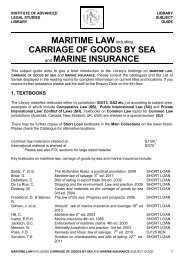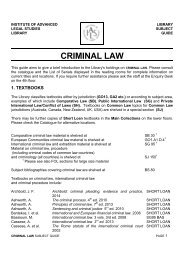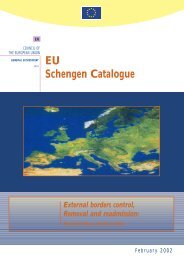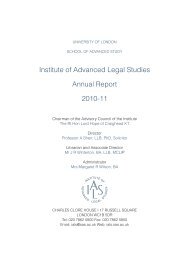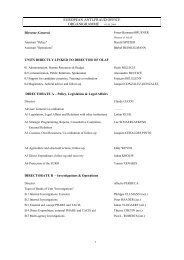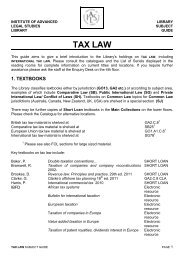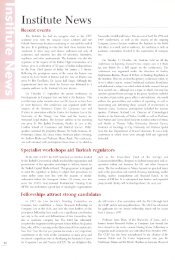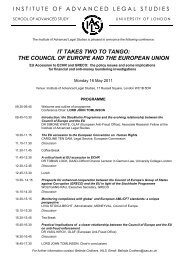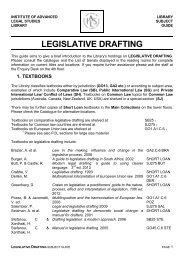a thesis - Institute of Advanced Legal Studies
a thesis - Institute of Advanced Legal Studies
a thesis - Institute of Advanced Legal Studies
You also want an ePaper? Increase the reach of your titles
YUMPU automatically turns print PDFs into web optimized ePapers that Google loves.
112 IMPLIED TRUSTS.<br />
CHAPTER XVII.—AGENTS CONSTRUCTIVE TRUSTEES IN<br />
CERTAIN CASES.<br />
WHERE a person employed by a trustee as agent receives<br />
trust property from the trustee, and knowingly deals<br />
with it in a manner inconsistent with the trust, or knowingly<br />
assists a trustee to commit a fraudulent breach <strong>of</strong><br />
trust, he is liable to make good to the beneficiaries any<br />
loss sustained by them as a consequence <strong>of</strong> the breach <strong>of</strong><br />
trust as if he had been a trustee.<br />
"It is . . . . clearly established," said Bacon, V.-C., in Lee v.<br />
Sankey (1872, L. E,. 15 Eq. at p. 211), "that a person who receives<br />
into his hands trust moneys, and who deals with them in a manner<br />
inconsistent with the performance <strong>of</strong> trusts <strong>of</strong> which he is cognizant,<br />
is personally liable for the consequences which may ensue upon his<br />
so dealing."<br />
More recently Lord Justice Kay has stated the rule thus: "A<br />
stranger to the trust, who receives the trust money with notice <strong>of</strong><br />
the trust, or knowingly assists the actual trustee in a fraudulent<br />
and dishonest disposition <strong>of</strong> the trust property, is a constructive<br />
trustee." (Soar v. Ashwett, (1893) 2 Q. B. at p. 405.)<br />
" On the other hand," Lord Selborne said, in Barnes v. Addy<br />
(1874, L. R. 9 Ch. App. at p. 251), with the entire concurrence<br />
<strong>of</strong> the other members <strong>of</strong> the Court <strong>of</strong> Appeal, " strangers are not<br />
to be made constructive trustees merely because they act as agents<br />
<strong>of</strong> trustees in transactions within their legal powers,—transactions,<br />
perhaps, <strong>of</strong> which a court <strong>of</strong> equity may disapprove,—unless those<br />
agents receive and become chargeable with some part <strong>of</strong> the trust<br />
property, or unless they assist with knowledge in a dishonest and<br />
fraudulent design on the part <strong>of</strong> the trustees." And this statement<br />
<strong>of</strong> the law was adopted by A. L. Smith, L. J., in Mara v. Broicne<br />
(1896, 1 Ch. 209).<br />
" What is the general doctrine with reference to constructive<br />
trustees <strong>of</strong> that kind?" said Stirling, J., in In re Blundell (1888,


